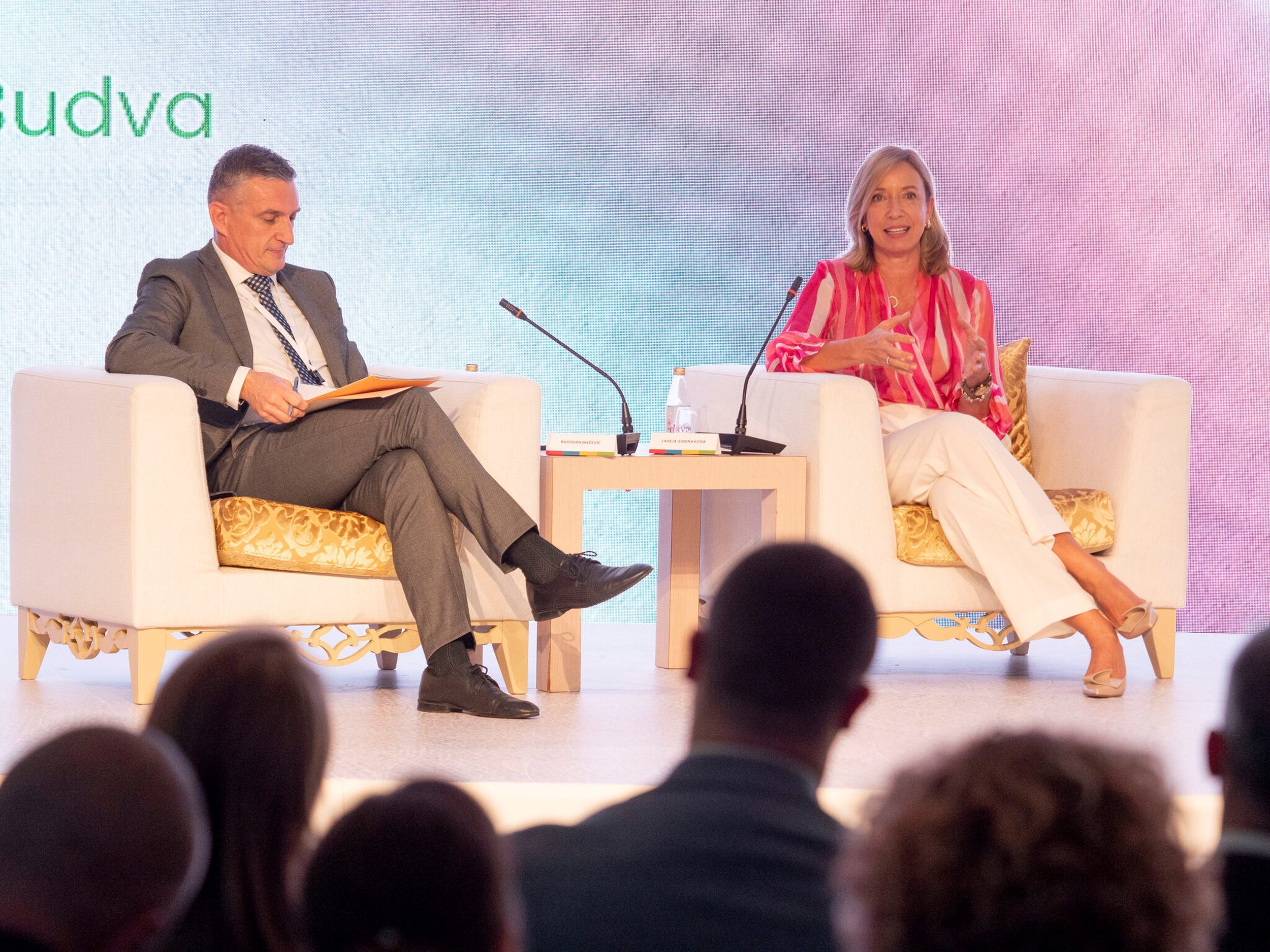Western Balkan 'Circular Economy Tour': Highlights from Zagreb, Sarajevo, Bucharest, and Budva
Ladeja Godina Košir, founder and executive director of Circular Change, recently completed an interesting tour through key cities in the Western Balkans, connecting with financial institutions, policymakers, and small and medium-sized enterprises (SMEs) focused on circular economy initiatives. Her insights emphasize the significant progress in sustainable practices and cross-regional collaboration. Below are the key takeaways from each city visit.
Zagreb: Sustainability in Finance at the Center of Excellence in Finance
In Zagreb, Ladeja participated in a pivotal event hosted by the Center of Excellence in Finance (CEF), where sustainability was positioned as an integral part of financial institutions’ risk management frameworks. The event highlighted how financial leaders are now prioritizing sustainability as a core element of effective governance. CEF’s coordinators discussed advancing sustainable governance across sectors and how educational investments in sustainability are critical for driving this transformation. CEF has been pivotal in integrating these principles into financial sector practices, underscoring the importance of education in building capacity for sustainable governance in the region.
Sarajevo: SMEs Embracing Circular Economy Models for Competitiveness
In Sarajevo, Ladeja led an inspirational session at the “Circular Accelerator for SMEs in Bosnia and Herzegovina,” organized by UNDP and Deloitte. The workshop brought together participants from SMEs eager to adopt circular economy models, which promise to improve their competitiveness on the international stage.
Attendees, including representatives from MDG International, noted the impactful insights offered by Ladeja and how the sessions expanded their understanding of circular strategies. The event showcased a growing recognition among SMEs of the transformative potential of sustainable business practices and the importance of circular models for sustainable growth in Bosnia and Herzegovina.
Bucharest: Network Governance and the Need for Structural Support
In Bucharest, Ladeja joined leading experts and policymakers at the 2024 Climate Change Summit, where conversations focused on creating effective governance frameworks to support scalable, impactful climate action. The summit, a major gathering of sustainability leaders from across Europe, centered around the theme of "Network Governance"—an approach that promotes the coordination of local initiatives with robust legislative and financial support.
During a discussion, Ladeja highlighted the need for strong connections between grassroots circular economy projects and policy frameworks to maximize their scalability and impact. She emphasized that aligning local efforts with cohesive policies and funding can enable lasting change. The summit featured several case studies that illustrated the successes of network governance, showing how well-supported regional initiatives can drive broader environmental and economic transformation.
Budva: A Call for Stronger EU Integration at the Economic Conference
The final stop on the tour was Budva, Montenegro, where Ladeja joined discussions at the Montenegro 2024 Economic Conference, organized by the Chamber of Economy of Montenegro. The conference marked a decade of the Berlin Process, a strategic initiative to bolster cooperation among the Western Balkans and European Union.
Ladeja highlighted that for the EU to establish a truly unified and resilient European market, it is essential to accelerate the integration of the Western Balkans. The event emphasized that the region’s stability and contributions to sustainability are vital assets for fostering peace and long-term growth across Europe.
As Ladeja now heads to Brazil, she plans to share these insights at Exchange 4 Change Brasil - Circular Hotspot Brazil, continuing to bridge discussions on the circular economy and inspire joint EU-Brazil initiatives. Her journey through the Western Balkans underscores the regional momentum toward a more sustainable and inclusive circular economy, showcasing the importance of collaboration, education, and policy alignment.




